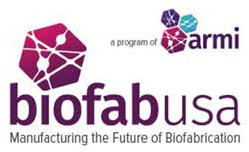

Building Stronger Workforce Alliances for BioFabrication & BioEngineering through K-12 Education & Enrichment
This project will provide an awareness campaign and science education support to teachers and youth in New Hampshire. Through the collaboration of experts in bioengineering and regenerative medicine with trained Next Generation Science Standards (NGSS) education consultants, four curriculum storylines (modules) will be designed. The storylines will advance students’ understanding of biofabrication and include access to scientist videos demonstrating the exciting and passionate work, skills and thinking they use in their work. The elementary modules will provide inquiry-based lessons and activities that increase students’ foundation in the practices and content that support this science understanding. The middle and high school modules will advance the learning with a problem-solving approach to engage students with the potential of biofabrication to regenerate cells, tissues, and organs. The modules will support current educational needs for Next Generation Science Standards and highlight BioFabrication as a rapidly growing field that requires collaboration and communication across the STEM disciplines. Click HERE for more detailed project design information.
Video presentation from the National Science Foundation's STEM for All Multiplex
BioFab/NGSS Scientist Video Profiles
The BioFab Educational Workforce Development (EWD) Project includes a series of videos helping secondary students to learn about the practices of scientists, engineers, technicians, and other professionals in the BioFab Industry. Each video will feature a "young-ish professional" with a variety of backgrounds and journeys in their career. Although the NGSS Science & Engineering Practices overlap considerably, you will find that each video highlights a particular area. Each of the videos will include on-the- job scenes that help our middle and high school students learn about each person's work, stories about how the individuals' education and career paths developed, and reflection on why they are so passionate about their work on the cutting edge of science.
Asking Questions and Defining Problems
Constructing Explanations
Planning and Carrying Out Investigations
Engaging in Argument
Developing and Using Models
Analyzing & Interpreting Data
Obtaining, Evaluating, and Communicating Information
Using Mathematics and Computational Thinking
PK-2 Storyline Lesson
PK-2 Early Elementary Storyline

3 - 5 Upper Elementary Storyline
6-8 Middle Grades Storyline
9 - 12 High School Storyline
-

- why should students investigate contemporary science topics - and not just "settled" science?
- how can i get my students to learn science by productively talking with each other?
- How can teachers guide classroom conversations to support students' science learning?
- Engaging students in computational thinking during science investigations
Research was sponsored by the Office of the Secretary of Defense through the Advanced Regenerative Manufacturing Institute. The views and conclusions contained in this document are those of the authors and should not be interpreted as representing the official positions, either express or implied, of the Advanced Regenerative Manufacturing Institute. Additionally, the research was sponsored by the Office of the Secretary of Defense and was accomplished under Agreement Number W911NF-17-3-0003. The views and conclusions contained in this document are those of the authors and should not be interpreted as representing the official policies, either expressed or implied, of the Office of the Secretary of Defense or the U.S. Government. The U.S. Government is authorized to reproduce and distribute reprints for Government purposes notwithstanding any copyright notation herein.



